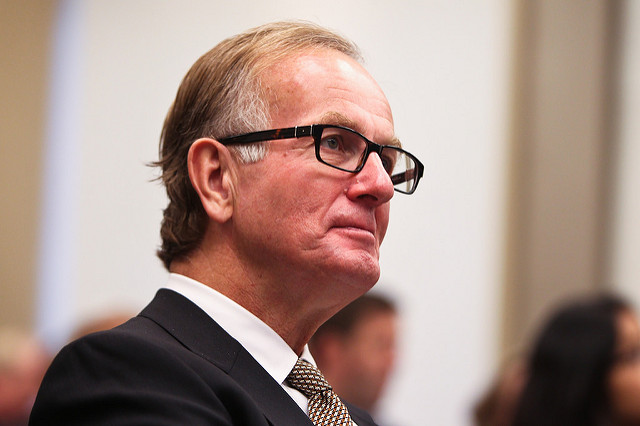Trump’s pick a good fit for US–Australia alliance

Arthur B. Culvahouse Jr has been nominated by Donald Trump to be the new US ambassador to Australia.
He will need to be ‘confirmed’ by Congress before he takes up the appointment, a process that could take up to several months.
If Australia got to choose a US ambassador and ran the selection process, we’d probably have three key things we’d like to see in a candidate.
Our top priority would be that Washington’s envoy in Canberra be directly connected to the US president—so that when she or he calls, the president not only picks up the phone, but listens.
Second, to be effective it’s essential that America’s top diplomat in Australia understands and can work the Washington policy machine and can connect to the US business, technology and education sectors to achieve outcomes.
Third, a US ambassador must understand the depth and value of the Australia–US alliance, and the Australia–US economic and social connection—and be driven to deepen them, not just maintain or let them coast. We don’t want paeans of praise for 100 years of mateship. We want an ambassador who is restless and full of energy to show what we can do together next, across the breadth of the strategic and economic relationship.
The good news is that Donald Trump’s nominee, A.B. Culvahouse, has all these attributes.
He’s been closely connected to the highest levels of US presidential administrations since 1976, serving in Ronald Reagan’s White House, as well as on various defence, intelligence, and foreign and public policy advisory boards. He’s also on the board of trustees of the Brookings Institution—one of the best US think tanks.
His long career in the law, peaking with leading law firm O’Melveny & Myers LLP, gives him a huge professional network across the US technology sector, the broader US corporate community, and into the US higher education sector—all areas that are key to building on the US alliance at this particular time in global affairs. He’ll have a fat rolodex and a well-connected smart phone.
Even more than Trump’s original nominee, Admiral Harry Harris, Culvahouse is well equipped to understand that Australian and American prosperity, freedom and security are built on much more than military-to-military, diplomatic and intelligence relationships. While these are crucial, we now need an agenda across a much broader strategic, economic and research landscape and we need to forge closer connections across these sectors between our two countries.
An amusing sidelight, maybe showing a bit of his character, was his line to then senator and presidential candidate John McCain during the 2008 election campaign. Running the vetting process that offered up Sarah Palin as a VP candidate for McCain to consider, he said she was ‘high risk, high reward’. McCain took the risk. Culvahouse’s judgement was right—with the risk side dominating.
From his experience in the defence and intelligence world, he will have an appreciation of bilateral security matters. He has visited Australia and spent time meeting people involved in national security policymaking—who I understand found him intelligent, informed and engaged, if low key in approach.
What’s new for him in the role? He’ll need to develop a public voice that works in the Australian political and domestic context, but that’s normal for newly appointed ambassadors. Others—like John Berry, the immediate past occupant of the post from 2013 to 2016—faced this challenge and did it well.
Any US ambassador also needs to be able to work with Australian ministers, other parliamentarians (notably the opposition) and officials as partners, and speak with frankness and clarity about where our national interests differ and where they overlap deeply.
Of course, he’ll be very well briefed by James Carouso, long-serving chargé d’affaires at the embassy, who has worked to create momentum in the alliance, and who knows Australia so well. Carouso hands over a going concern rather than a renovator’s dream, so Culvahouse will be able to get off to a running start.
I don’t see any real risks for his confirmation: he’s likely to have support from both sides of Congress. And he certainly understands what’s involved in a vetting and confirmation process, so he’ll be well prepared.
This is good news for the Australian–American relationship—not just in national security terms but across the broad strategic and economic landscape.